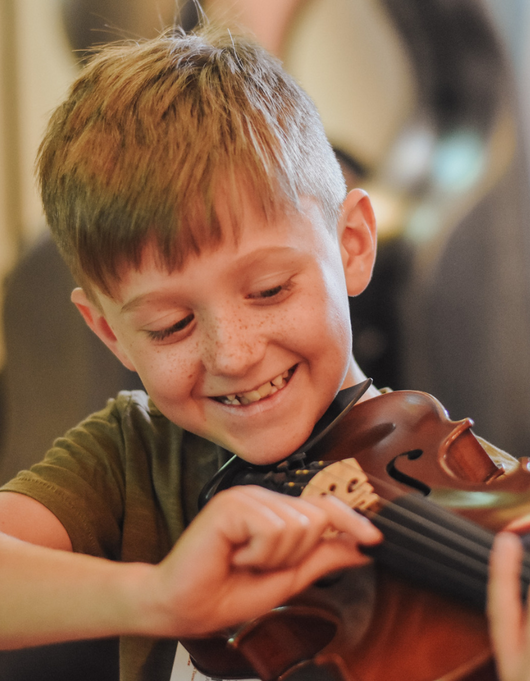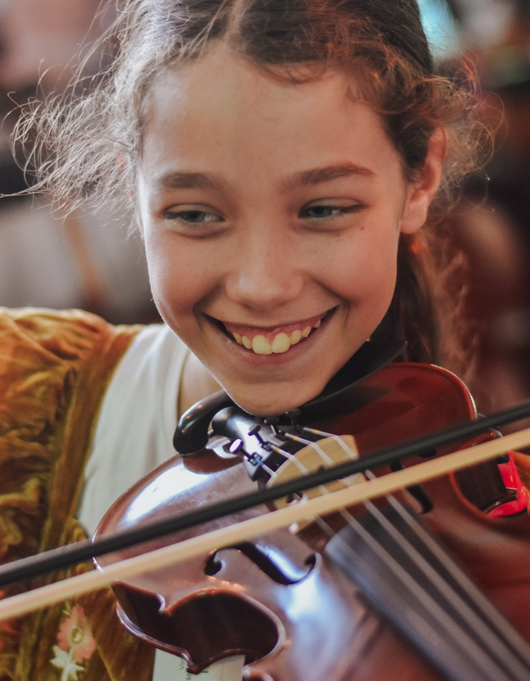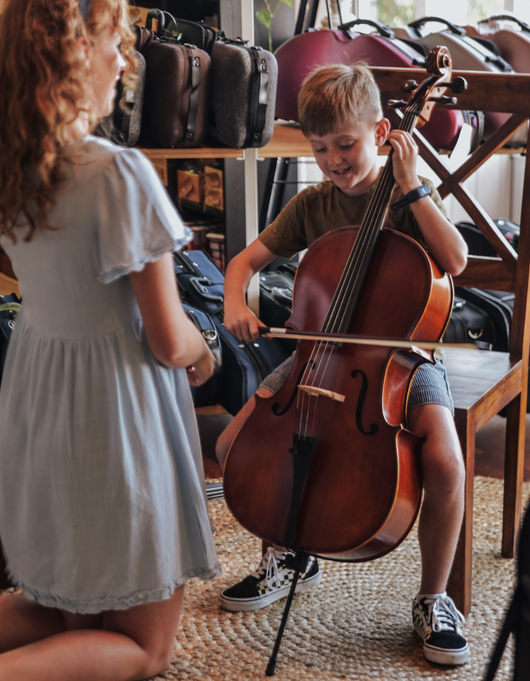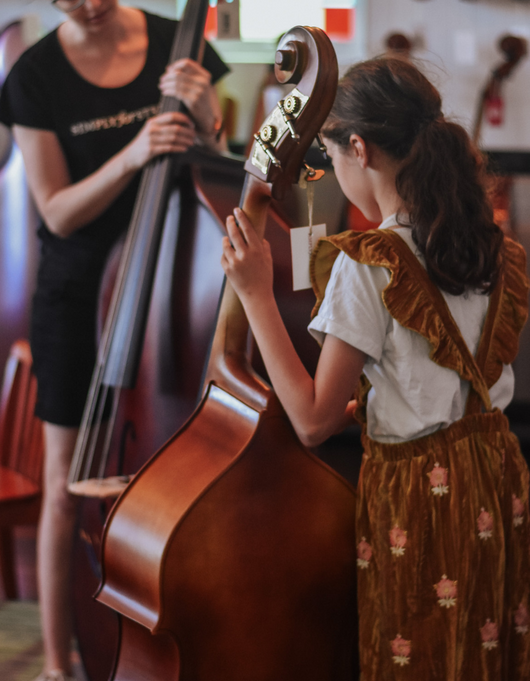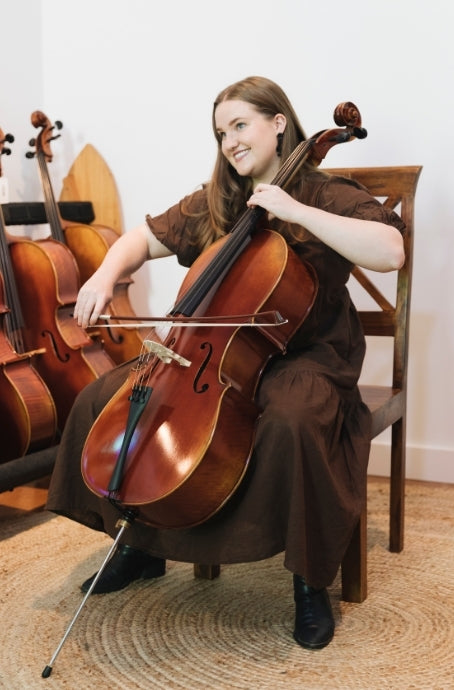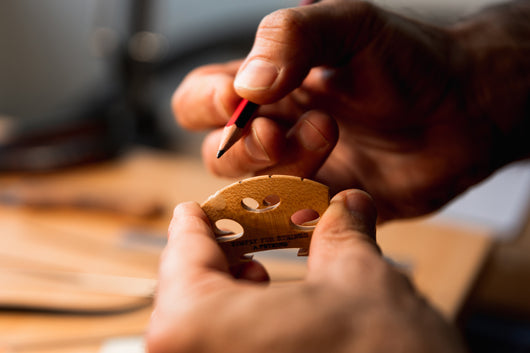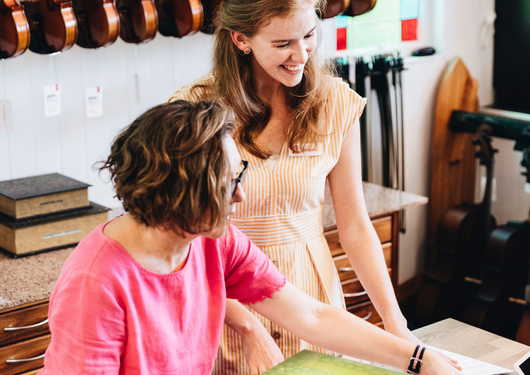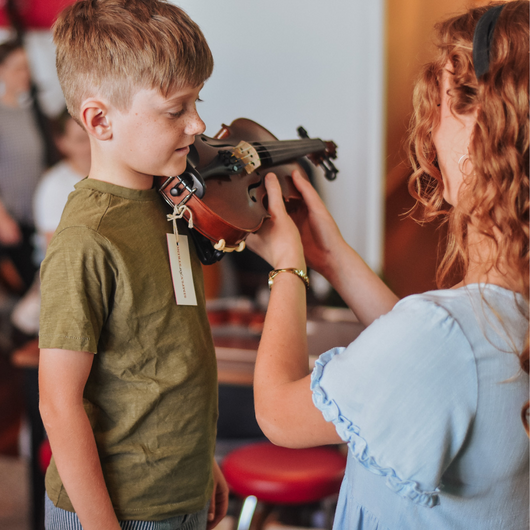Picking up an instrument for the first time marks the very first step on a long journey.
We can tell you from the outset, this journey won’t always be easy. There will be hurdles that you’ll have to leap over and obstructions that you’ll need to limbo under.
There will be mysteries that can only be unravelled with hard work and there might even be times when you feel like you want to fling your bow into Timbuctoo.
But, trudging on, even when you’re staring down the barrel of what feels like an endless pile of new information and a stack of skills that just seem so out of reach, you will be rewarded in more ways that you can fathom.
So, be brave now, and later, your world will transform with the following benefits:
Unleash your creativity
According to Neuroscience, self-expression is one of the key ways that people connect, navigate and grow with each other.
Using music to unlock the creativity that already exists inside you is one of the purest forms of self-expression. It’s tapping into something deep within, and showing it to the world.
Ask any musician you know, there are few things that feel as empowering as that.
Boost mental development
Learning music actually makes your brain work more efficiently.
Working memory is the bookmark that we use to placehold information until we are ready to use it. It plays an important role in helping us remember things and follow instructions. It impacts both our decision-making and behaviour responses.
According to a study conducted by Baycrest’s Rotman Research institute, musicians (and those who are bilingual) use fewer brain resources when progressing through working memory tasks than those who aren’t musically trained and only speak one language.
Dr Claude Alain, one of the study’s researchers, said that using less effort to perform the same task could protect against cognitive decline and even delay the onset of dementia.
He also said, "Our results also demonstrated that a person's experiences, whether it's learning how to play a musical instrument or another language, can shape how the brain functions and which networks are used.”
Relieve stress
Research shows that playing music can reduce stress and ease the burden of anxiety and depression.
According to the Chair of the Musical Therapy Department at the Berklee College of Music, Suzanne Hanser, “Research shows that making music can lower blood pressure, decrease heart rate, reduce stress, and lessen anxiety and depression. There is also increasing evidence that making music enhances the immunological response, which enables us to fight viruses.”
Music therapy itself, is the use of musical interventions to improve patients’ quality of life.
Improve your confidence
The process of learning a new craft, of overcoming the associated challenges, will instill confidence in you that you are powerful, adaptive and progressing each day.
To keep track of your progress, we recommend keeping a practice journal. Not only will a practice journal help you keep track of what has and hasn’t worked for you in the past, but it also provides a clear roadmap of how far you’ve come.
On days where you might be feeling disheartened, flip open your practice journal and remind yourself of how far you’ve come. Let this serve as a reminder of how far you’ve come and a relic of your ability and capacity to grow, learn and hone your craft.
Connect with others
Learning music fosters connection.
Simply for Strings is a testament to the way that music brings people together. Every day, we have musicians visiting us in store to read up on music and chat to our staff and each other about their latest musical achievements, wins and processes.
When you play music, your social circle cracks open. Through talking to musicians who have been in your position before, you can learn from them, be inspired by them, and fast-track your own progress with their wisdom.
Improve time management and discipline
In music, timing can be everything.
When you’re playing music in a group, you need to be aware of the music around you and be alert to your fellow musicians - otherwise you will quickly become lost.
Music sharpens your sense of timing, both during playing and in your daily life. Scheduling in practice and attending music meet-ups helps to develop your sense of time management and hone your discipline. Each of these things have real-world effects on your quality of life.
Got a friend that can never seem to make your coffee catch-ups on time? Maybe it’s time to suggest violin lessons!
Activate joy
To us, this is the real kicker of playing music - it just feels good.
The feel-good impacts of music has been studied extensively by researchers.
The University of Missouri found that upbeat music has a positive impact on our general wellbeing. According to the lead researcher, Dr Yuna Ferguson, “People were successful at raising their positive mood as long as the music they listened to was happy and upbeat”.
However, that’s not to say that music that isn’t strictly upbeat doesn’t also elevate the mood of listeners and players. Bigger Better Brains spells out the findings of a study researching the rewards of music listening; making and listening to music lights up the connection in our brain that is listening and the part of our brain that is anticipating what is coming next.
We often listen to songs and unconsciously predict what is coming next in the tune. When our prediction is right, we get a whack of dopamine - the feel good chemical.
The best part about this is that even when we are wrong in our prediction, we still get that hit of dopamine, like a pleasant surprise.

We asked our staff, how has playing music shaped you into the person you are today?
“Well, since I was diagnosed with hyperactivity as a little ’un (read ADHD in modern lingo) I was rather semiquaver paced in everything I said and did, with a bit of agitato thrown in from time to time. Learning two musical instruments taught me patience and gave me the ability to get through life in a more measured manner (read nice solid crotchets) - at least most of the time, for the lively little semiquavers inside still like to pop out from time to time, especially when negotiating staircases.” - Michael
“Music has given me the opportunity to experience travel and life from a different perspective, and I love being able to give back. One local community in South America even told me that I’d inspired them to engage a fulltime cello teacher for their students – that’s what it’s all about for me.” - Elisabeth
“Music has given me some amazing opportunities throughout the years to connect with other musicians, play pieces I’ve always loved, and taught me discipline, perseverance, patience and so much more. I can’t imagine who I’d be without the gift of music.” - Emily
“As a young teen, music gave me an escape into another world outside of the pressures of school and awkward teen social circles. Within music, I found calm, complexity, direction and a strive to better myself.” - Shannon
If you’ve been on the fence about whether or not to explore the transformative world of music, we hope this article has convinced you to begin the first day of the rest of your life with a string instrument.
As always, the Simply for Strings doors are always open for those curious about music. If you have any questions, big or small, visit our friendly team of staff in-store or pop into our email at hello [at] simplyforstrings.com.au. We’d love to meet you.



